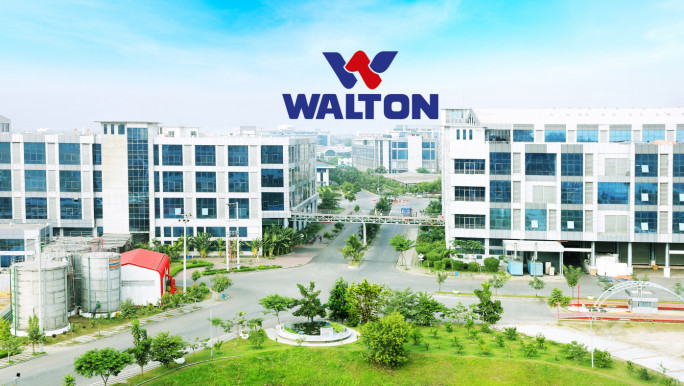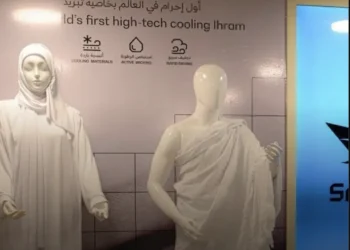With a market size of 2.4 billion US dollars, or approximately 26 thousand crore BDT, the consumer electronics sector is one of Bangladesh’s most rapidly growing industries. What was once a fully import-dependent sector is now dominated by local brands across most product categories. For example, in the refrigerator market, only 3 out of every 100 products sold are imported.
Walton holds a significant share of this market. In fact, most of the beverage refrigerators you see in supermarkets, wholesale, and retail stores across the country are manufactured by Walton. Beyond the domestic market, Walton exports products to more than 40 countries, including North America, Europe, South Asia, and the Middle East. How has this company, which has been operating for nearly three decades, managed to compete with some of the biggest and oldest tech companies in the world?
1. Introduction
Walton Hi-Tech Industries PLC, a listed engineering company on Bangladesh’s capital market, is moving steadily towards its goal of becoming a top global brand, while maintaining its leadership in the country’s electronics sector.Over the years, the country has transitioned from being heavily reliant on imported electronics to developing a self made local manufacturing industry. This shift has not only reduced dependency on imports but also created employment opportunities and contributed to economic growth. Walton has been at the forefront of this transformation, emerging as a key player in making Bangladesh more self-reliant in electronics production .
Walton’s impact extends beyond manufacturing. The company has invested significantly in research and development, leading to innovations that enhance product quality and efficiency. By focusing on affordability and quality, Walton has made modern technology accessible to a broader segment of the population. Furthermore, its commitment to sustainability and corporate social responsibility initiatives has set a benchmark in the industry
2.1. Company Overview
The journey of Bangladesh’s consumer electronics sector began in the 1950s when a few private companies were established to assemble radio sets. In the following decade, these assembly plants also began assembling television sets. However, following the country’s independence, the sector became almost entirely import-dependent. In the 1980s, a few assembly plants were again established in Bangladesh for the manufacture of small electronic appliances like radios, televisions, audio players, and video cassette players. Walton entered Bangladesh’s electronics market in 1997. According to the Financial Express, during that time, these domestic companies started assembling products by importing various electronic components and parts to add local value. Here is the journey
Start of Manufacturing (2007): Walton began producing refrigerators, freezers, and air conditioners in its own factory after establishing Walton Hi-Tech Industries Ltd.
Competitive Pricing: Local manufacturing helped Walton offer more affordable prices than international brands, attracting Bangladeshi consumers.
Influence on Local Market: Walton’s success encouraged other local brands to enter the electronics manufacturing space using partial local production and imported components.
Rise of Joint Ventures: Foreign brands like Samsung (with Transcom and Fair Electronics) and LG (with Butterfly) set up joint ventures in Bangladesh to benefit from local assembly tax/VAT incentives.
Early Export Initiatives (2011): Walton began exporting products to international markets while maintaining local supply.
Global Expansion: Walton exports to 40 countries, including in the Middle East, Africa, Europe (e.g., Germany, Romania), and has offices in six countries (USA, South Korea, India, Nepal, UAE).
Subsidiary in the USA (2021): Walton established a USA-based subsidiary to expand its global brand presence.
Strategic Acquisitions (2022): Walton acquired the Italian compressor brand Acc and two other European brands to enhance its technology and international market share.
Market Leadership in Bangladesh: Walton holds 75% of Bangladesh’s refrigerator market, outperforming global giants through pricing, local adaptation, and early market dominance.
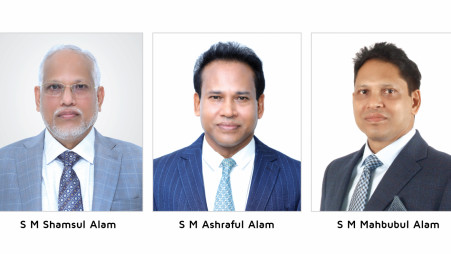
The founder of Walton Group, the late Alhaj SM Nazrul Islam, was born in 1929 in a well-established Muslim family in the Tangail district. Later, Walton Hi-Tech Industries PLC’ has appointed SM Shamsul Alam as chairman, SM Ashraful Alam as vice chairman, and SM Mahbubul Alam as managing director.They will play an important role in turning Walton into one of the best five global electronics brands by 2030. Md Ziaul Alam, FCA, ACA (ICAEW), Additional Managing Director and Chief Financial Officer of Walton Hi-Tech Industries PLC, said that sustainable growth requires a strong institutional structure, skilled human resources, and the development of future leadership.
“Profit-making is not Walton’s sole objective,” Md Ziaul Alam, FCA, ACA (ICAEW) said. “We are investing heavily in developing Bangladesh’s electronics industry, enhancing technological advancement, and generating employment while contributing to the country’s socio-economic progress.”
2.2. Product Range
Walton offers a diverse range of products under the Walton, Safe, and Marcel brands. These include:
- Refrigerators and Freezers
- Air Conditioners
- Televisions (LED, LCD, SsSmart TVs)
- Mobile Phones and Laptops
- Home Appliances (microwave ovens, washing machines, etc.)
- Motorcycles and Electric Vehicles
- Elevators and Compressors
- Electrical Appliances
- Service Parts (molds, dies, screws, nuts, and bolts)
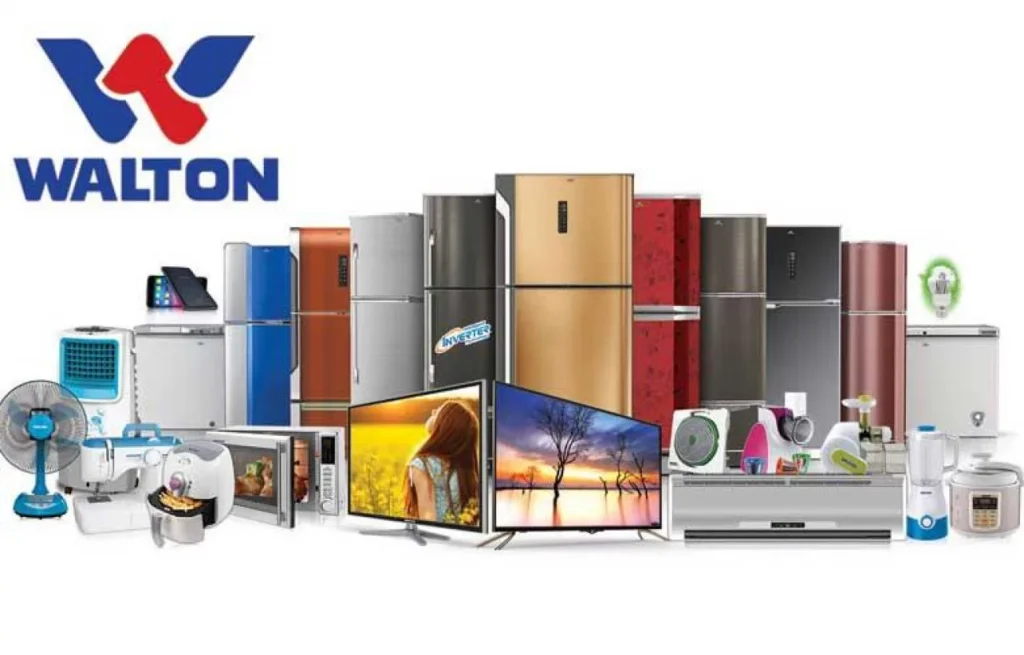
This extensive product range caters to the needs of various customers, both in Bangladesh and abroad.Walton products go through more than 70 different tests before reaching the market. NUSDAT is an independent testing lab globally certified for quality and compliance testing. Based on the lab’s reports, Walton can secure various global certifications, such as CE Certification for the European Union, FCC Certification for the USA, GS Mark Certification for the German market, and UL Certification for Northern American markets, as well as G-mark Certification for Middle Eastern countries. Walton’s products comply with these international standards, and more than 600 engineers are currently working in Walton’s Research & Innovation team, making it one of the largest teams in South Asia.

2.3 Organization Goals and Objectives of Walton
The ultimate goal of Walton Hi-Tech Industries Ltd. is to establish itself among the top consumer electronics, automobile, and home appliance manufacturers globally. Historically, Bangladeshi consumer products were considered substandard, but Walton has worked hard to shift this perception by delivering high-quality goods that instill confidence in consumers.
- Walton empowers its workforce to achieve world-class performance, considering them crucial to organizational success. Open communication and employee respect are key. To tap into the U.S. and E.U. markets, Walton aims to launch international brands priced at a premium.
- Walton’s manufacturing plant in Gazipur, Bangladesh, spans approximately 5,886,473 square feet and consists of 21 buildings. This expansive facility showcases the company’s commitment to advanced and sustainable manufacturing practices .
- Walton follows a product-based organizational structure. The company’s efforts are focused on its main products while extending into new markets. Departments like Sales, Marketing, Finance, and Operations report to Vice Presidents in charge of specific product lines.
Walton’s organizational structure helps the company focus better on its products and customers, improves how product performance is evaluated, and allows for quicker responses to market changes. It also reduces the pressure on the CEO by distributing responsibilities among departments.
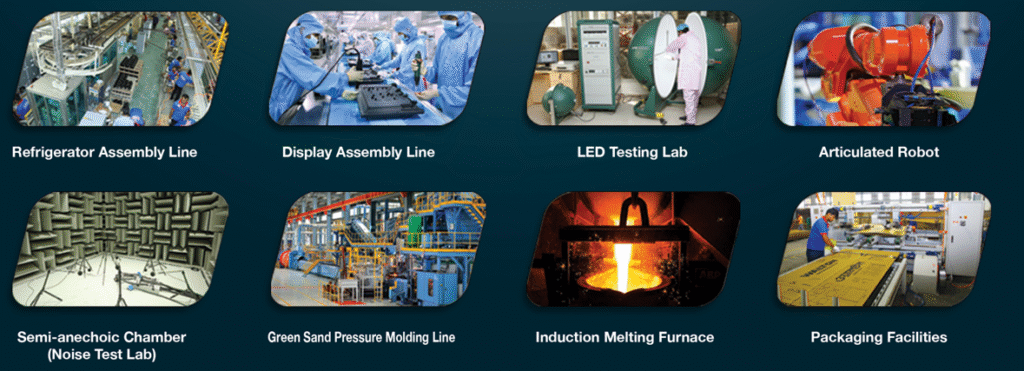
3. Innovation and Research & Development (R&D)
Walton Hi-Tech Industries PLC places significant emphasis on research and development (R&D), recognizing it as a key driver of innovation, competitiveness, and international growth. With over 1,200 engineers and technical staff working in its R&D division, Walton is actively expanding its technological boundaries.
Smart Refrigerators with AIoT Technology
Walton introduced South Asia’s first four-door AIoT (Artificial Intelligence of Things) smart refrigerator. This advanced appliance features a large multimedia touchscreen display, YouTube browsing, offline video/audio playback, online grocery management, and a UV-based Intelligent Germ Terminator (IGT). Such innovations reflect Walton’s strategy of integrating modern smart home technology into traditional appliances to enhance daily convenience for consumers.
Bangla voice control air conditioner
Walton’s new Bangla voice control air conditioner is the company’s most recent innovation.Bangladesh’s first voice-controlled air conditioner with Bangla language operable was unveiled as part of the Oceanus series. This air conditioner is equipped with a large energy-saving inverter and includes UV (Ultra Violet) treatment and frost cleaning, among other innovative features.
“Walton dedicated this invention to the country’s Language Movement martyrs.” – according to SM Mahbubul Alam, Director, Walton Hi-Tech Industries.
Establishment of R&D Center in South Korea
To further bolster its research capabilities, Walton established a dedicated R&D facility in South Korea. This strategic move allows the company to access Korean electronics expertise, improve product design, and integrate AI-driven features. The center focuses on next-gen technologies for smart devices, and has significantly contributed to Walton’s high-end smartphone development, energy-efficient appliances, and smart TV innovations.
Development of VRF (Variable Refrigerant Flow) Air Conditioners
Walton is among the first Bangladeshi companies to develop and produce VRF air conditioning systems. These systems are highly energy-efficient, often used in large buildings for their ability to control the temperature in individual zones. Walton’s R&D team engineered these using inverter technology, significantly reducing electricity consumption while improving cooling precision. This technology is now used in commercial projects across Bangladesh.
Electric Motorcycles and Vehicles
As part of its green innovation strategy, Walton developed a line of electric motorcycles and scooters tailored for urban commuters. These vehicles are powered by lithium-ion batteries and offer a low-maintenance, eco-friendly alternative to fuel-based transportation. Walton’s engineers focus on improving battery life, safety features, and affordability to make EVs more accessible to the mass market.
Locally Designed PCB (Printed Circuit Board) Technology
Walton has also focused on backward integration by designing and manufacturing its own PCBs—an essential component in electronic devices. This move reduces reliance on imports and enhances production control. The company currently uses its own PCB designs in TVs, fridges, and mobile devices, allowing better customization, quality assurance, and cost efficiency.
Read More: The Alarming Reality: A Fragile Financial Sector Ravaged by Looting
4. Walton’s Journey Towards Capital Market
Walton Hi-Tech Industries PLC, a leading Bangladeshi electronics manufacturer, has made significant strides in its journey toward the capital market, marking a pivotal chapter in its corporate evolution.
Entry into the Capital Market

In September 2020, Walton debuted on the Dhaka Stock Exchange (DSE) through an Initial Public Offering (IPO). The Bangladesh Securities and Exchange Commission (BSEC) approved Walton’s IPO proposal on June 23, 2020, allowing the company to raise approximately Tk 100 crore by issuing 2,928,343 ordinary shares. Of this amount, about Tk 61 crore was raised from eligible investors, while general investors contributed the remaining Tk 39.03 crore.
Market Performance and Capitalization
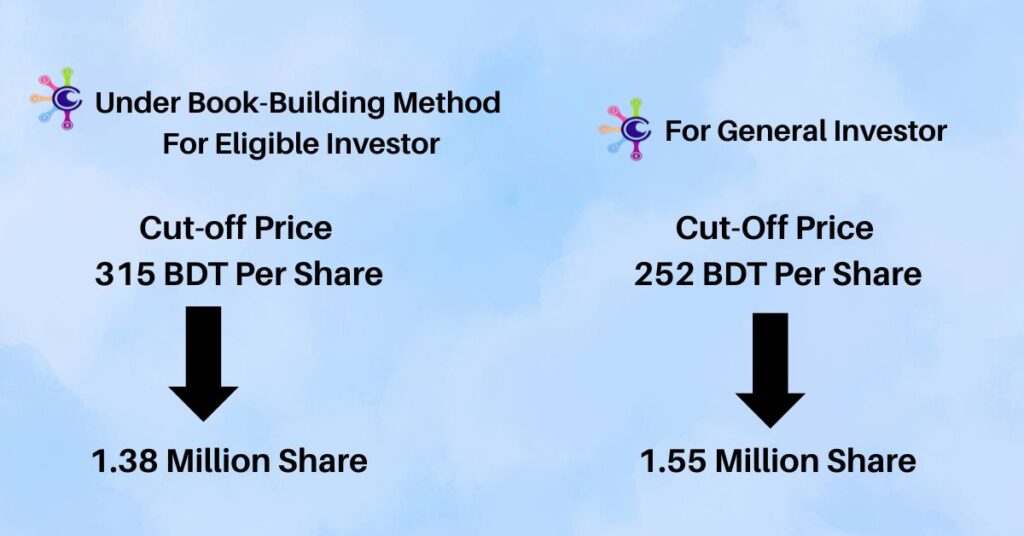
Upon listing, Walton’s shares commenced trading at a cut-off price of Tk 252. By July 14, 2022, the share price had surged to Tk 1,078, underscoring strong investor confidence. At that time, Walton’s market capitalization stood at Tk 32,667 crore, accounting for over 6% of the total market capitalization of the DSE.
Financial Highlights

2021: Walton earned a strong Q3 profit of 385.76 crore, indicating solid performance.
2022: Profits slightly declined to 373.79 crore, showing a minor downturn.
2023: A notable drop occurred with profits falling to 235.55 crore.
Reasons for Decline
- High inflation and volatile global financial conditions.
- Increased material and financing costs.
- Currency devaluation (weaker Taka).
- Increased VAT: 7.5% on refrigerators and air conditioners.
2024: Walton made a strong comeback with 421.98 crore in Q3 profits.
2025: Profits slightly dipped to 391.24 crore, maintaining stability after the previous year’s peak.
4. Market Position and Competitive Analysis
4.1 Domestic Market Share
Walton Hi-Tech Industries PLC has established itself as a dominant force in Bangladesh’s electronics market. As of 2023, the company’s market shares in key product categories are as follows:
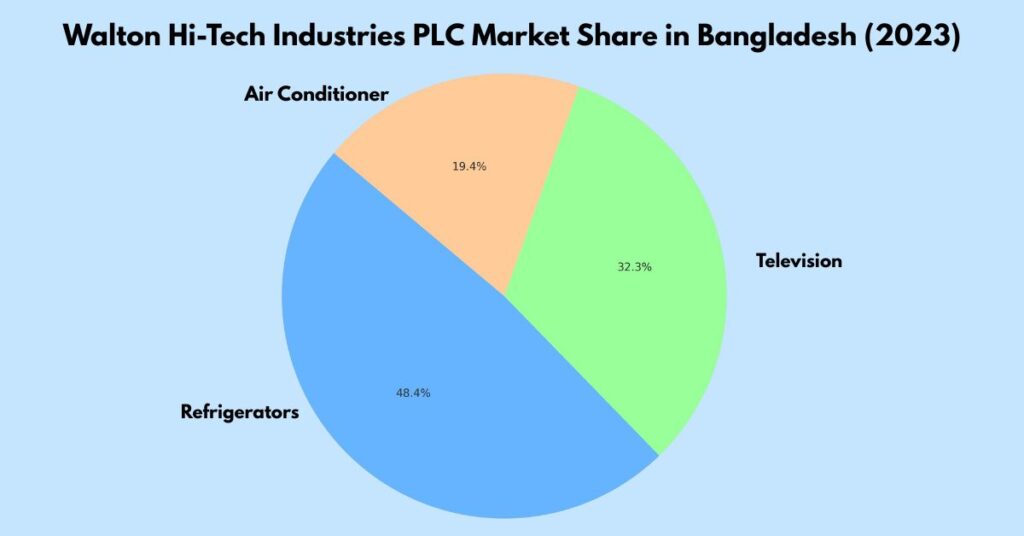
- Refrigerators: Approximately 75%
- Televisions: Around 50%
- Air Conditioners: About 30%
This substantial market presence underscores Walton’s popularity and the trust it has garnered among Bangladeshi consumers.
4.2 Competitive Advantages
Walton’s success in the domestic market can be attributed to several strategic advantages:
Vertical Integration: By controlling the entire production process—from manufacturing components to assembling final products—Walton ensures quality control and cost-effectiveness. This approach reduces dependency on imports and allows for rapid innovation.
Extensive Distribution Network: Walton boasts over 21,000 sales points across Bangladesh, ensuring widespread product availability and prompt customer service.
After-Sales Service: The company provides reliable and efficient after-sales support, enhancing customer satisfaction and fostering brand loyalty.
Localized Product Design: Walton designs products tailored to the specific needs and conditions of the Bangladeshi market, such as voltage fluctuations and high humidity, ensuring better performance and durability.
Affordable Pricing: By leveraging economies of scale and local manufacturing, Walton offers products at competitive prices, making electronics more accessible to a broader segment of the population.
4.3 International Competitors
On the global stage, Walton competes with established electronics giants such as Samsung, LG, and Sony. While these brands have a strong international presence, Walton differentiates itself by:
Targeting Emerging Markets: Walton focuses on providing affordable, high-quality products tailored to the needs of consumers in emerging markets, where price sensitivity is a significant factor.
Expanding Export Footprint: The company exports products to over 40 countries, including nations in Europe, Asia, and Africa, and has established branches and liaison offices in countries like the USA, South Korea, India, Nepal, and the UAE .
Strategic Acquisitions: Walton has acquired European brands such as ACC, Zanussi Elettromeccanica, and Verdichter, enhancing its technological capabilities and expanding its global reach .
These strategies position Walton as a formidable competitor in the global electronics market, particularly in regions where consumers seek cost-effective alternatives without compromising on quality.
Read More: Nazihar Group’s Strategic Journey: Innovation and Sustainability in Bangladesh’s Business Landscape
5. Redefining ‘Made in Bangladesh’
Walton’s strategic investments in technology, commitment to sustainability, and efforts to expand globally underscore its position as a leading electronics manufacturer in Bangladesh. Despite facing economic challenges, the company’s diversified portfolio and forward-looking initiatives position it well for future growth.
5.1. Strategic Investment in Lithium-Ion Battery Manufacturing
Establishment of a Lithium-Ion Battery Plant: Walton has announced plans to invest approximately Tk 114 crore to establish a lithium-ion battery manufacturing facility in Gazipur. This initiative aims to reduce import dependency and cater to the growing demand for rechargeable batteries in portable electronics and electric vehicles .
Partnership with Huawei: In collaboration with Huawei, Walton is setting up a fully automated production line with an annual capacity of 80,000 units, targeting the telecom sector’s need for reliable power sources for mobile towers .
5.2. Commitment to Sustainable Energy and ESG Goals
Rooftop Solar Projects: Aligning with Bangladesh’s vision for a green and carbon-free future, Walton has installed a 6.5 MW rooftop solar project at its headquarters in Gazipur and is implementing an additional 13.5 MW project. These initiatives contribute to reducing carbon emissions and promoting renewable energy usage .
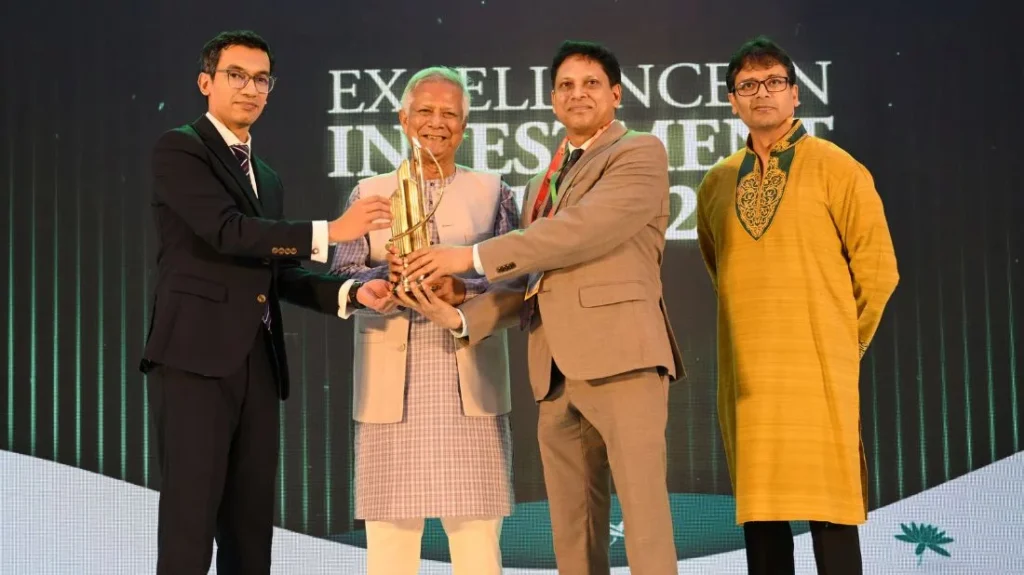
Recognition for Investment Excellence: Walton’s significant contributions to sustainable investments have been acknowledged with the ‘Excellence in Investment Award 2025’ by the Bangladesh Investment Development Authority (BIDA), under the Environmental, Social, and Governance (ESG) category . The award was presented by the Honourable Chief Adviser of the People’s Republic of Bangladesh, Professor Dr Muhammad Yunus.
5.3. Collaboration on Recipe Book
Walton, the electronics giant, and InterContinental Dhaka have joined forces to unveil a recipe book titled “The Art of Fine Dining.” This collaboration aims to provide a new cooking experience for Walton microwave oven customers, allowing them to recreate five-star hotel recipes in the comfort of their own homes.The recipe book features a collection of mouthwatering recipes curated by InterContinental’s experienced and renowned Chef Md. Asaduzzaman. These recipes have been carefully crafted and explained understandably, offering food lovers a unique culinary journey.
5.4. Expansion of Global Footprint
Acquisition of European Brands: To strengthen its global presence, Walton has acquired three European compressor brands—ACC, ZEM, and VOE. This strategic move not only expands Walton’s product portfolio but also enhances its competitiveness in international markets
Ambitious Export Targets: Walton aims to achieve an export volume of $5 billion by 2030, focusing on expanding its reach in Asia, Africa, and Europe. The company is actively exploring new markets and establishing international offices to facilitate this growth .
5.5. Diversification into New Product Segments
Electric Vehicle (EV) Manufacturing Plans: Walton is leveraging its engineering expertise to enter the electric vehicle market, with plans to commence EV manufacturing in Bangladesh. This move aligns with global trends towards sustainable transportation .
Expansion into Elevators and IoT Devices: The company has ventured into manufacturing elevators, previously an import-dependent product in Bangladesh, with an annual capacity of 600 units. Additionally, Walton is focusing on producing components for Internet of Things (IoT) devices, showcasing its commitment to innovation and diversification .
6. Walton’s Key Business Challenges
Walton, despite its strong domestic presence, encounters several significant challenges in the global market. Such as
Brand Perception Abroad
Walton’s “Made in Bangladesh” label still lacks premium recognition in many international markets. The perception of products from developing countries is often lower than that of established brands from developed nations. This can make it difficult for Walton to compete with more widely recognized international brands, especially in markets where quality and status are key selling points.
Global Competition
Walton faces strong competition from established global electronics giants that have a larger marketing reach, well-established reputations, and higher budgets for innovation. These companies dominate the global market with superior brand power, making it harder for Walton to penetrate new markets and gain significant market share.
Supply Chain Disruptions
Walton relies on imported raw materials for manufacturing, and global supply chain instability—due to geopolitical factors, shipping disruptions, and logistical challenges—has impacted production timelines and raised costs. Weak infrastructure, such as underdeveloped domestic transport and port systems, exacerbates delays in delivery, affecting customer satisfaction and the company’s ability to meet demand in a timely manner.
Inflation & Currency Volatility
The Bangladeshi economy faces periodic inflation and currency volatility, which affects Walton’s pricing strategy and cost management. Increased VAT, regulatory changes, and rising material costs can disrupt business planning and erode profit margins. Furthermore, energy price hikes and power cuts can negatively impact factory operations, increasing downtime and reducing production efficiency.
7. Emerging Global Opportunities
While Walton contends with various challenges, there are ample opportunities for growth and expansion.
New Market Entry
As markets in Africa, Latin America, and untapped parts of Asia continue to grow, Walton has a significant opportunity to expand its presence by offering affordable electronics tailored to these regions. With rising incomes and a growing middle class, these markets present a promising demand for Walton’s products.
Product Diversification
Walton can explore new revenue streams by expanding its product line into high-demand areas like lithium-ion batteries, smart devices, and eco-friendly appliances. By tapping into the sustainability trend, Walton can meet the growing consumer demand for energy-efficient and environmentally friendly products, positioning itself as a forward-thinking brand.
Digital Growth
The rapid growth of e-commerce and data-driven marketing strategies presents an opportunity for Walton to engage customers more effectively. With an increased focus on online sales channels, Walton can build a stronger digital presence, increase sales, and better understand customer preferences through data analytics.
OEM Expansion
Walton has the potential to grow by manufacturing for other global brands as an Original Equipment Manufacturer (OEM) or by supplying components such as compressors. Partnering with established global brands can lead to increased visibility, expanded production, and greater global reach.
Green Innovation
The rising demand for sustainable products offers Walton an opportunity to innovate in the green technology space. By focusing on eco-friendly solutions like inverter systems and R600a refrigerants, Walton can attract sustainability-focused consumers who are increasingly conscious of the environmental impact of the products they purchase.
8. Strategic Recommendations
To maximize its growth potential and overcome challenges, Walton must focus on several strategic initiatives.
Improve Supply Chain
Walton can enhance supply chain efficiency by investing in advanced logistics systems and establishing more local supplier networks. Strengthening local sourcing will help reduce reliance on imported raw materials, cut costs, and minimize disruptions, enabling Walton to be more agile and responsive in fulfilling customer demand.
Strengthen Global Branding
Walton needs to tailor its marketing strategies for international markets to improve brand recognition and visibility. By positioning itself as a global player with high-quality and affordable products, Walton can compete more effectively with international brands and build a loyal customer base abroad.
Invest in Talent
Walton should invest in the development of skilled professionals, especially in the fields of engineering and design. Offering training programs, career growth opportunities, and creating a nurturing work environment will help Walton attract and retain top talent, leading to innovation and sustained product quality.
Advance R&D
Focusing on the next generation of technologies like Artificial Intelligence (AI) and the Internet of Things (IoT) will help Walton stay competitive in the evolving electronics market. Investing in research and development will ensure that Walton’s products remain innovative, technologically advanced, and appealing to a global audience.
Expand After-Sales Network
To strengthen customer satisfaction and loyalty, Walton should establish more service centers and local partners abroad. An expanded after-sales network will improve customer support, providing maintenance, repairs, and faster resolutions to issues, ensuring a positive experience for international customers.
9. Conclusion
Walton Hi-Tech Industries PLC stands as a shining example of how a homegrown Bangladeshi brand can transform into a global player through innovation, strategic investments, and commitment to excellence. Despite facing challenges such as supply chain issues, global competition, and economic volatility, Walton has leveraged its strengths in research and development, local manufacturing, and customer-focused strategies to maintain a dominant position in the domestic market and expand internationally.
With growing export operations, cutting-edge technology adoption, and eco-friendly product lines, Walton is not only shaping the future of Bangladesh’s electronics industry but also positioning the country as a credible contributor to the global hi-tech manufacturing ecosystem. To maintain its momentum, the company must continue to strengthen its global branding, invest in talent, and expand into emerging markets, ensuring sustainable growth and long-term impact on both the national and global stages.
References

